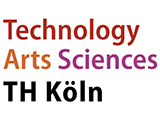TH Köln - Cologne University of Applied Sciences:
Introduction and Overview
TH Köln - Cologne University of Applied Sciences is located in Cologne, North Rhine-Westphalia, Germany. It is one of the largest universities of applied sciences in Germany, with 11 faculties and 100 full-time bachelor's and master's degree programs. Its International Affairs Office provides student exchange opportunities with more than 360 partner universities in 94 countries.
History and Establishment
The school was established in August 1971 and was formed by the merger of many smaller colleges. The oldest of these was the Royal Provincial Trade School established in 1833, which was renamed the Cologne City Trade College on December 15, 1879.
School Strength
Faculty: It has about 440 professors and 2,000 Administrative staff and a strong faculty provide strong support for teaching and scientific research.
Scientific research capabilities: As a research-intensive university, it actively participates in various research activities and cooperates with many universities and scientific research institutions at home and abroad to conduct cross-institutional and cross-regional professional knowledge exchanges. Its scientific research results are second to none in the field of applied research, especially in the fields of medical engineering, optical measurement technology, environmental protection, etc.
Institutional nature
Public university.
Educational philosophy
Emphasis on stimulating students' curiosity and promoting a sustainable learning process through learning methods based on research, problems and projects, so that students can have an in-depth understanding of various scenarios that may be encountered in their future professional lives, thereby closely combining theory with practice and enabling students to better adapt to the needs of social development.
Key laboratories and disciplines
Key laboratories: The school has professional laboratories in multiple disciplines, such as engineering-related laboratories that provide students with practical operations and scientific research platforms, and medical engineering laboratories that are committed to the research and development and innovation of medical technology, but there are currently no clear national or world-class key laboratories.
Key disciplines: Covering applied natural sciences, architecture and construction, information and communications, computer science, engineering, culture, society and social sciences, and business research. Among them, economics and management have a high reputation in Germany. The economics major ranks third in Germany. Design and computer majors are also prominent.
Department Settings
The school has 12 There are 10 departments, including the Department of Applied Social Sciences, the Department of Cultural Sciences, the Department of Information Science and Communication, the Department of Business, Economics and Law, the Department of Architecture, the Department of Civil Engineering and Environmental Technology, the Department of Information, Media and Electrical Engineering, the Department of Automotive Systems and Production, the Department of Process Engineering, Energy and Mechanical Systems, the Department of Computer Science and Engineering Sciences, the Department of Applied Natural Sciences, the Department of Spatial Development and Infrastructure Systems, in addition to the Institute of Tropical and Subtropical Technology and Resource Management, the Cologne International School of Design and other institutions.
Ranking
The school does not appear in major international comprehensive rankings such as the Times Higher Education Rankings and the Academic Ranking of World Universities (ARWU), but it has a high status and influence among German universities of applied sciences, and its economics major ranks third in Germany.
Expenses
Tuition fees: German public universities usually charge students lower tuition fees or no tuition fees. Some majors of the school may charge several hundred euros per semester, but the specific fees vary depending on the major.
Living expenses: Cologne is one of the big cities in Germany, and the cost of living is relatively high. The monthly living expenses of students, including rent, food, transportation, etc., are about 1000-1200 euros.
Campus
Campus facilities: The campuses are located in Cologne, Gummersbach and Leverkusen, with a total of 3 campuses. Among them, the South City Campus in Cologne mainly has humanities-related departments, the Deutz Campus has engineering-related departments, and the Mulheim Campus has the Cologne Game Laboratory. In addition, there are two computer science-related campuses in Gummersbach and a chemistry-related campus in Leverkusen. The school has modern teaching facilities and complete living facilities, including well-equipped classrooms, laboratories, libraries, student dormitories, canteens, sports facilities, etc., providing students with good learning and living conditions.
Campus environment: The school is located in Cologne, which is the fourth largest city in Germany and an international economic and technological center. Students can be exposed to rich culture and the latest technological trends here. At the same time, the city has convenient transportation, which is convenient for students to participate in various academic activities and internship opportunities.
-

Heidelberg University
-

University of Freiburg
-

University of Jena
-

University of Marburg
-

University of Rostock
-

University of Halle-Wittenberg
-

University of Bayreuth
-

Leipzig University
-

University of Tübingen
-

Humboldt University of Berlin
-

Mesoamerican University
-

Istmo University
-

Mariano Galvez University of Guatemala
-

Regional University of Guatemala
-

Galileo University
-

Francisco Marroquín University
-

Rafael Landívar University
-

University of the Valley of Guatemala
-

University of San Carlos of Guatemala
-

Technological Institute of Tlaxcala Plateau
-

Golfo University
-

Technological University of South Sonora
-

Technological University of Huejotzingo
-

Tizimín Institute of Technology
-

Chilpancingo Institute of Technology

